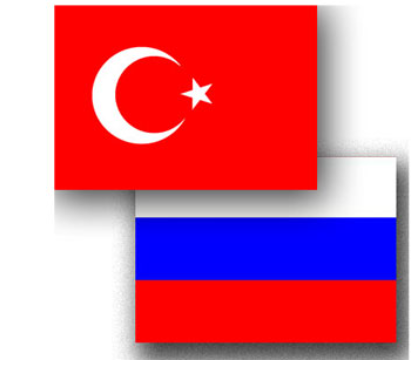Russia has managed to successfully market its oil volumes that have been shunned by the West. But about 90% of its crude exports in the first quarter of the year went to only three partners — China, India and Turkey — creating a critical dependence for Moscow on those countries. Pressure from the West — on India and Turkey in particular — to rein in those purchases, along with re-exports of Russian products and sales of so-called dual-use goods to Russia, meanwhile looks set to grow.
A Turkey under new leadership could adjust its energy ties with Russia, but looks set to face new pressures either way.
Turkey has emerged as a crucial trade partner for Moscow, which sees it as a friendly country despite its NATO membership. It has become another important outlet for Russian oil shunned by the West, importing some 430,000 b/d of Russian products over the past three months, double last year’s average, with imports of ultra-low-sulfur diesel alone reaching around 250,000 b/d in March.
President Recep Tayyip Erdogan has forged especially close ties with President Vladimir Putin, and energy cooperation has deepened, including in the strategic nuclear power sector, with Rosatom building Turkey’s first power plant. Erdogan’s good showing in the first round of Turkey’s presidential poll last Sunday, against an opponent who has vowed to improve cooperation with the West, will therefore have been welcomed in Russia.
Turkey is not expected to stop buying discounted Russian crude and products if Erdogan’s rival, Kemal Kilicdaroglu, pulls off a surprise second-round victory, as Turkey is not bound by the EU embargo and its economy clearly benefits from them. But Turkey’s role as a potential hub for the covert re-export of Russian products to Europe is another matter. US and European pressure on Turkey appears to have succeeded in ending the country’s use of Russia’s Mir payment system and largely halting the transit of sanctioned goods to Russia. Now, as the EU increases the pressure on its Asian allies to clamp down on sanctions workarounds and concerns about disguised Russian diesel being shipped to some EU countries rise, the surge in Turkey’s imports of discounted Russian fuel is coming under greater scrutiny.
Russian airlines have received millions of US-made aircraft parts since the invasion of Ukraine
Turkey’s intimate political ties with Russia, which led to a substantial increase in bi-lateral trade is raising eyebrows in many quarters. The risk of extra-territorial sanctions for companies engaged with Russia is on the rise, of which thousands of small ones hail from Turkey. Recently, Russia invited more FDI from Turkey to fill the gaps left by Western multi-nationals abandoning the country. The European Commission’s 11th sanctions proposal focuses on preventing sanctions circumvention via third countries/parties. Recent studies indicate that significant volumes of sanctioned goods, including high-tech products, have been imported to Russia via China, Turkey, and countries in Central Asia and the Caucasus.
A recently discovered case of airplane parts smuggling may also implicate Turkey. Millions of dollars’ worth of aircraft parts entered Russia in 2022 despite Western sanctions preventing exports — suggesting the strategy isn’t as bulletproof as governments had hoped, according to Business Insider.
Since Russia invaded Ukraine in February 2022, the US has worked with 40 countries to impose crippling sanctions against Russia as a way to paralyze its economy and punish President Vladimir Putin.
Despite the efforts, $14.4 million worth of US-made parts were smuggled into Russia in 2022, according to customs data obtained by The New York Times. About $9 million worth were specifically Boeing parts, though the plane maker told the outlet that it has not done business with Russia since the sanctions.
One of these illegal schemes was recently unveiled with the arrest of Russian business partners Oleg Patsulya and Vasilii Besedin in Arizona on Thursday.
The two were charged with money laundering and violating US export laws after allegedly helping Russia get much-needed parts for its airline fleets, which has been ongoing since August 2022.
According to a criminal complaint filed in the US District Court Friday, the pair circumvented sanctions by purchasing parts from suppliers and re-selling them to Russian airlines for a profit.
The parts were shipped via countries such as Turkey, China, and the Maldives, though some were also delivered directly from the US and Europe, per the filing.
While EU remains reluctant to push Turkey into a corner by demanding stricter compliance with third-party sanctions enforcement, some Turkish experts claim US is becoming more vigilant.
While these issues are not directly related to each other, Erdogan’s veto of Swedish accession to NATO may compel US lawmakers to tighten the screws on Turkish trade with Russia, as well as exports to gain leverage.
Follow our English language YouTube videos @ REAL TURKEY: https://www.youtube.com/channel/UCKpFJB4GFiNkhmpVZQ_d9Rg
And content at Twitter: @AtillaEng
Facebook: Real Turkey Channel: https://www.facebook.com/realturkeychannel/
